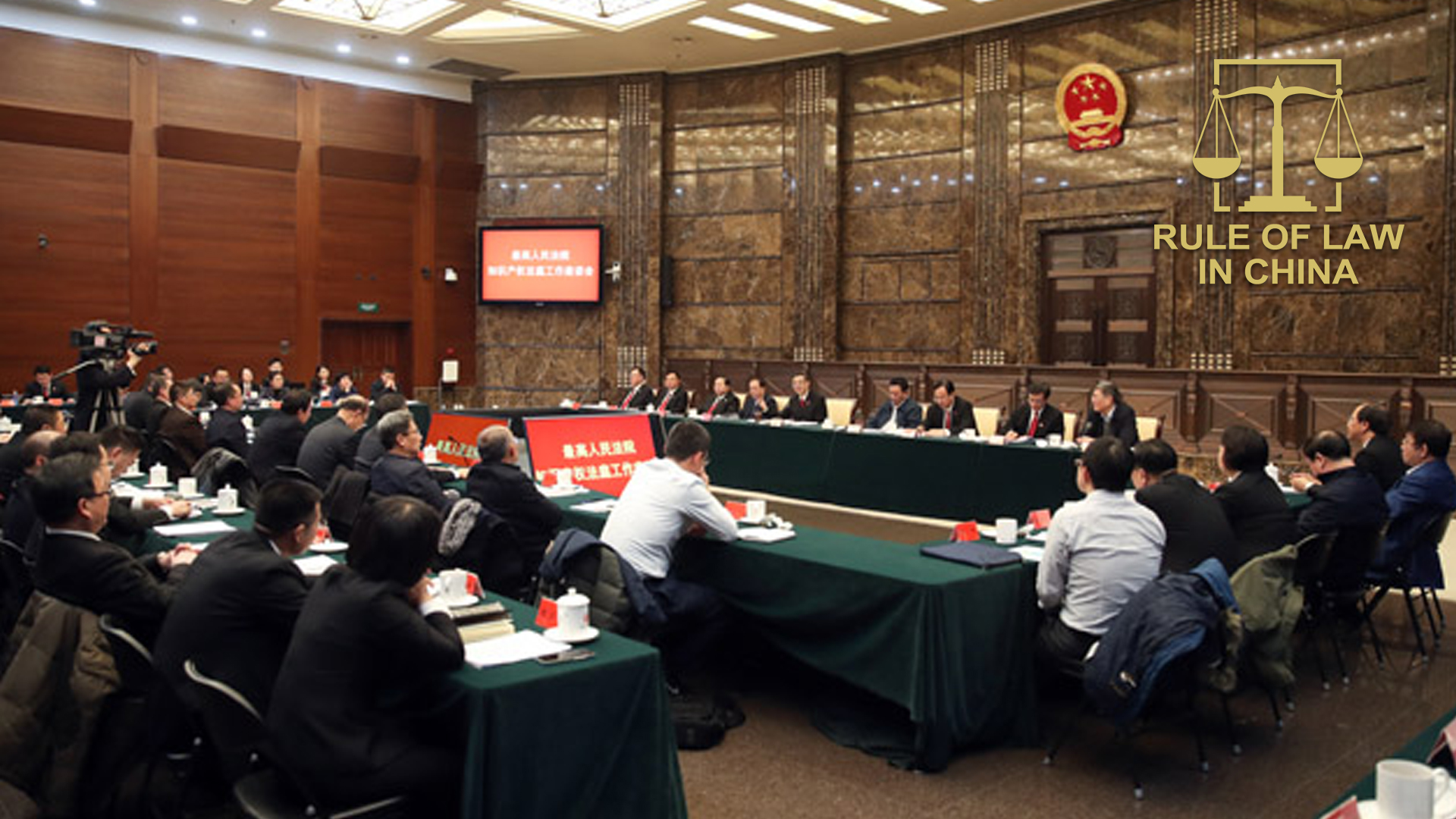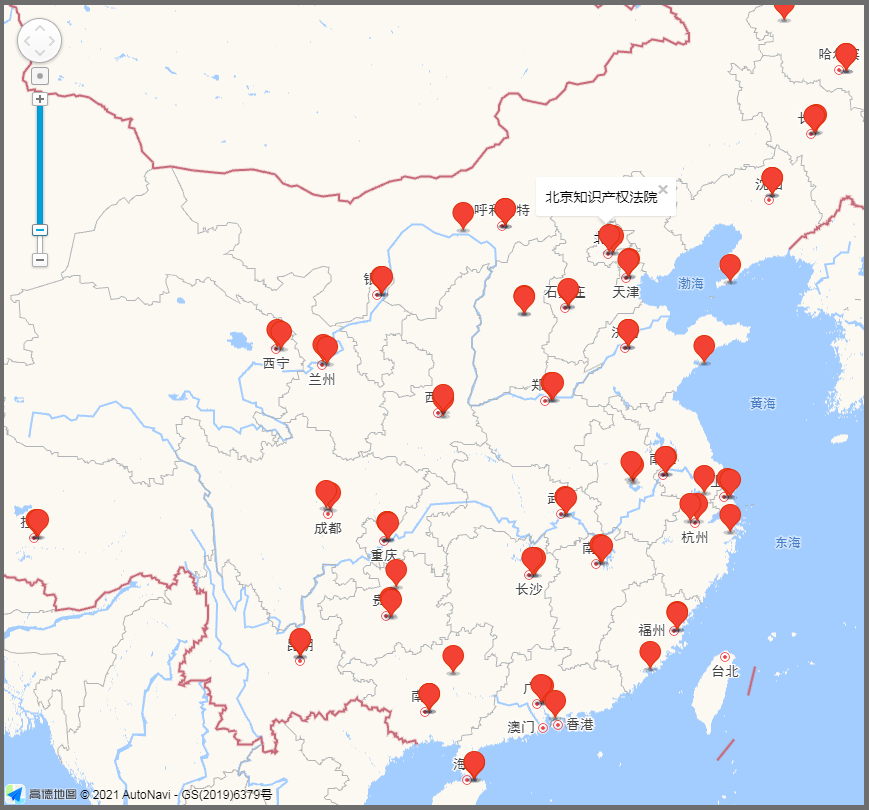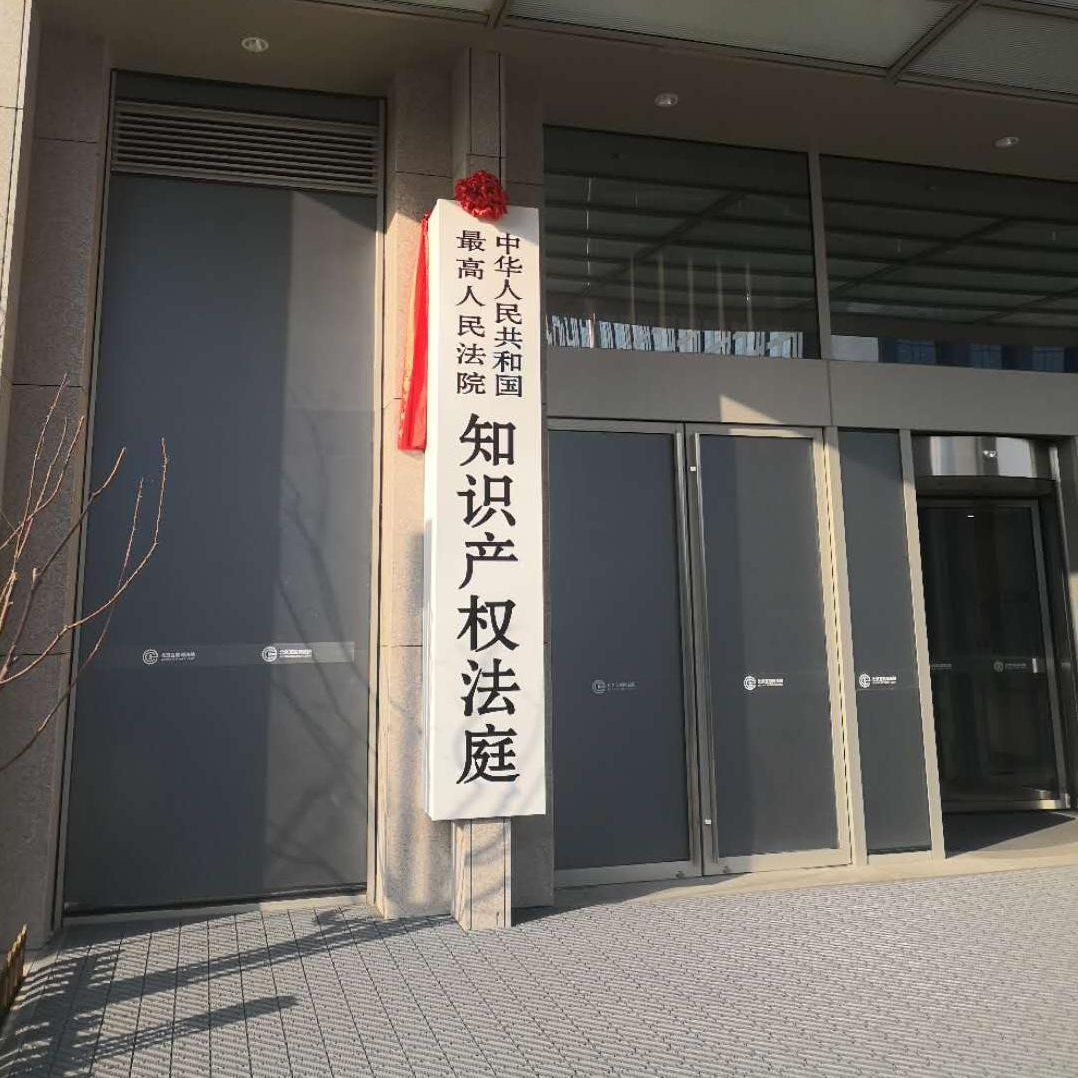06:34

The Chinese government has stressed that the protection of intellectual property rights relates to the modernization of China's governance system and the overall situation of the country's opening-up to the outside world. To protect IP rights, China has been carrying out systematic reforms and technological innovation over the years.
IP courts structure: One plus four plus 22
In China's IP adjudication system, "One" means the IP Court for appeals at the national level within the Supreme People's Court (SPC), officially named as the Intellectual Property Court of the Supreme People's Court.
The others are specialized IP Courts at lower levels, including "four" independent courts located in China's key economic regions - Beijing, Shanghai, Guangzhou and the Hainan Free Trade Zone — and "22" divisional courts in some provincial capitals and other major cities across the country.
Local-level courts were successively established in 2014, and the top judicial organ for intellectual property cases was inaugurated at the beginning of 2019, where litigants, who disagree with the rulings of intellectual property cases made by the local-level courts, could appeal directly to the SPC's IP Court.
According to He Zhonglin, first deputy chief judge of SPC's IP Court, the purpose of establishing the court is to further unify the adjudication standards for IP cases and improve the quality and efficiency of IP case trials, through which the credibility and international influence of Chinese courts' trials over IP cases can be further enhanced and judicial safeguard for China's national strategy on innovation-driven development can be further strengthened.

Intellectual property courts across China. /The Intellectual Property Court of the Supreme People's Court of China
Intellectual property courts across China. /The Intellectual Property Court of the Supreme People's Court of China
Using innovation to protect innovation
Different from other criminal or civil cases, IP cases especially those technology-related IP cases can be really complicated. To find the facts, technical and talent support are of great importance.
He Peng, a judge of SPC's IP Court, explained to CGTN that in some cases that involved large-sized allegedly infringing products that can't be easily moved to the court for trial, they would use high-tech products and other measures to address the difficulty through on-line hearings. And for some cases that involved tiny allegedly-infringing products, the court would use technological means including AR glasses to observe the details of those tiny objects.
And the IP Court of SPC has also established a national talent pool for technical investigation of IP cases, in which over 450 technical investigators from more than 30 technical fields are equipped for IP infringement investigation.
"In terms of building smart courts, including making use of high technology, like using block-chain to fix evidence in Xiangcheng Court, China is no longer following other countries' steps. In fact, China has achieved curve overtaking, or even plays a leading role in this," He Jingjing, an associate professor at Institute of International Law in Chinese Academy of Social Sciences, said.
According to a recent-released report by the SPC's IP Court, the cases received by the Court last year increased as much as 63 percent compared to that of 2019 due to the continued rise in intellectual property disputes. And one eighth of cases were from strategic emerging industries.
Recently, the SPC's IP Court publicized a flagship case heard by the court in 2020, which involved Huawei and Conversant Wireless Licensing (CWL). The dispute was over standard essential patent (SEP) licensing in connection with mobile phones. According to He, the First Deputy Chief Judge of SPC's IP Court, the case is very influential because it's the first time a Chinese court had practiced the anti-suit injunction in the field of intellectual property.
In the area of conflict of laws, anti-suit injunction is an order issued by a court that prevents an opposing party from commencing or continuing a proceeding in another jurisdiction or forum
"Another point worth mentioning about this case is that the injunction granted by the IP Court specified fine calculation on a daily basis, i.e. if the party ordered not to follow the injunction, it shall be fined one million RMB per day and the ultimate amount shall be accumulated according to such calculation method," He said, adding in the case, the two sides eventually reached a settlement agreement, and all the SEP-related disputes between the two companies around the world were solved.

The Intellectual Property Court of the Supreme People's Court of China officially starts operation, Beijing, China, January 1, 2029. /The Intellectual Property Court of the Supreme People's Court of China
The Intellectual Property Court of the Supreme People's Court of China officially starts operation, Beijing, China, January 1, 2029. /The Intellectual Property Court of the Supreme People's Court of China
"As a judge, I can strongly feel the changes in judicial protection of IP rights. The first change is that there are more and more disputes related to invention patents. The second is that there are more and more technology-intensive cases. For example, disputes over the layout designs of integrated circuits are becoming more and more, which was rare in the past," He Peng said, adding the same trend also applies to the cases of disputes over patent right and patent application right.
"By handling these cases, I clearly felt that companies' awareness of protecting their patient rights became increasingly stronger."
He Jingjing, the associate professor, said that IP protection is all about protecting innovation. By adopting smarter and more convenient high-tech measures by the intellectual property courts, the IP judicial system of the country is actually using innovation to protect innovation.

